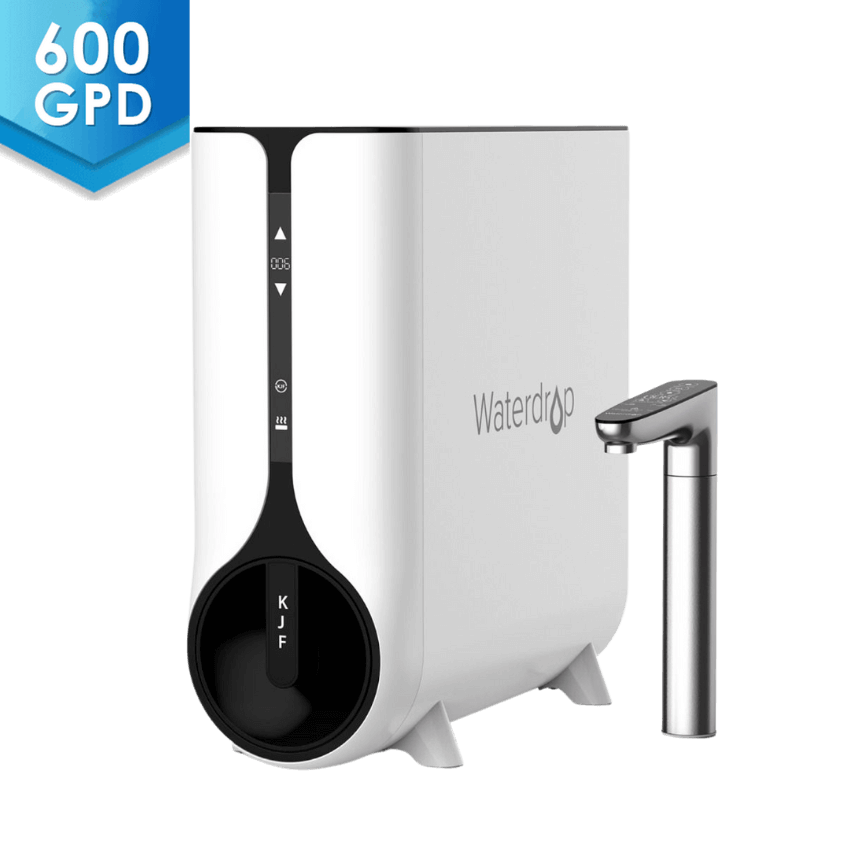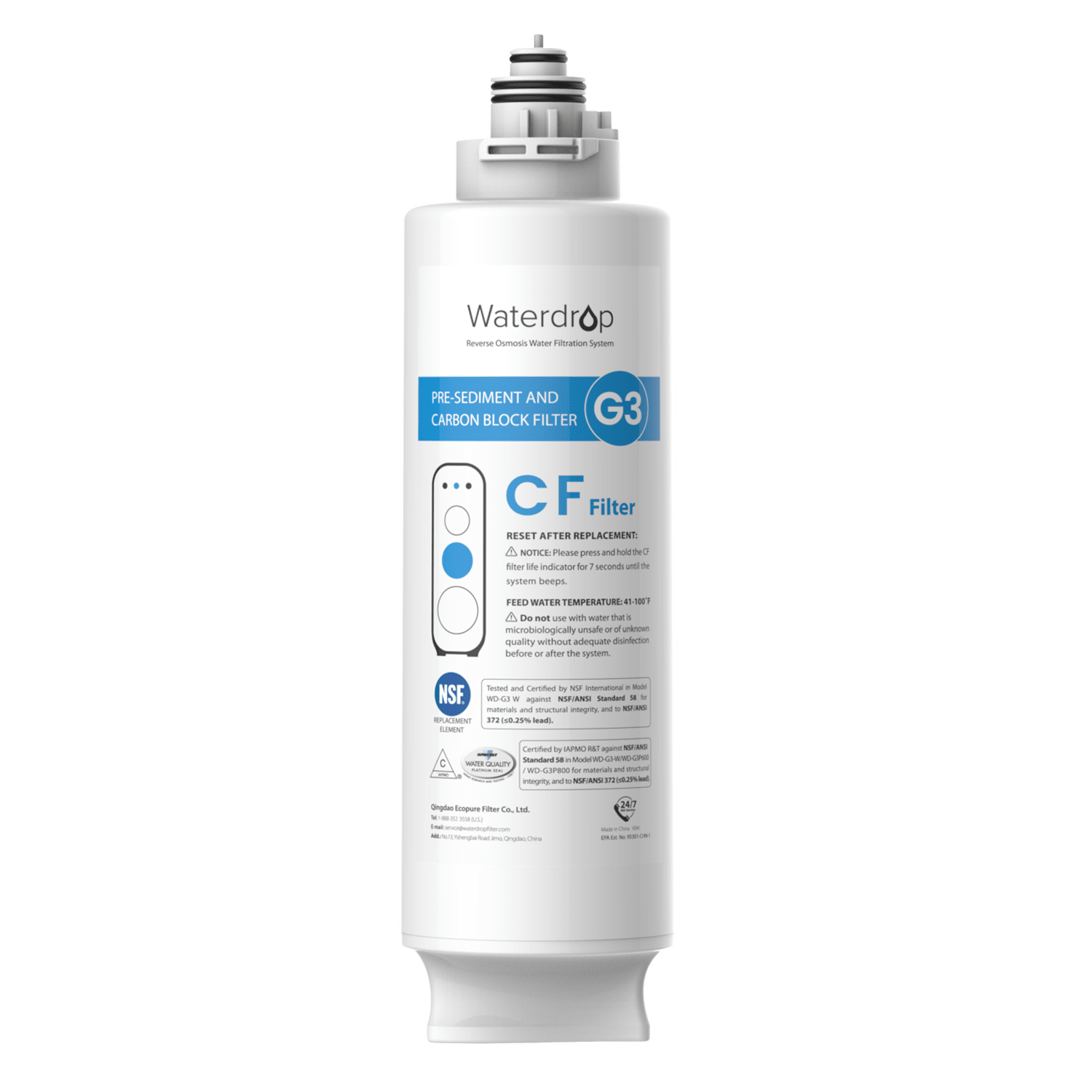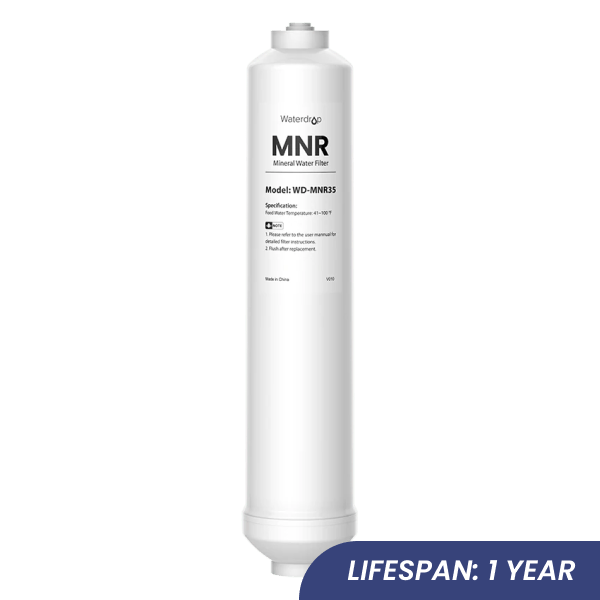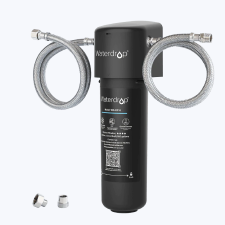Can You Cook with Distilled Water? Benefits, Uses, and Considerations
by Dr. Jonathan Doyle - Updated March 13, 2025
When it comes to cooking, the type of water you use can have a significant impact on the taste, texture, and
overall quality of your food. Distilled water is commonly associated with scientific and medical uses, but it
also has applications in the kitchen. This blog will explore what distilled water is, how it affects cooking,
and whether it’s a good choice for your culinary needs.
What Is Distilled Water?
Distilled water is a type
of purified water that has undergone distillation, a process where water is boiled into steam and then condensed
back into liquid form, leaving behind impurities, minerals, and contaminants.
Distilled Water Properties
- Purity: Free from minerals, bacteria, and chemicals.
- Distilled Water pH : Typically around 5.5 to 7, slightly acidic due to the absorption of carbon dioxide from the air.
- Taste: Neutral but sometimes described as “flat” due to the absence of minerals.
Benefits of Cooking with Distilled Water
Cooking with distilled water offers several advantages, particularly for those who want to maintain pure
flavors, better baking results, and protect kitchen appliances from mineral buildup.

Perfect for Baking
Minerals in tap water can affect dough chemistry and yeast fermentation, causing inconsistent baking results.
Distilled water, free of these minerals, ensures proper rising and consistent texture, ideal for professional
and home bakers.
Reduces Limescale Buildup in Appliances
Kitchen appliances like coffee makers, kettles, steamers, and rice cookers often develop limescale from minerals
in regular water, reducing efficiency and lifespan. Using distilled water prevents buildup, extending appliance
life and reducing the need for frequent descaling.
Ideal for Cooking Pasta and Rice
When cooking pasta and rice, minerals in water can affect texture, making pasta sticky or rice uneven. Distilled
water prevents this, ensuring a cleaner texture and more consistent cooking.
Potential Downsides of Cooking with Distilled Water
While distilled water offers many advantages in cooking, it also has some drawbacks. The absence of minerals and
slight acidity may influence certain dishes and beverages.

Lack of Minerals
Distilled water lacks minerals like calcium, magnesium, and potassium, which enhance flavor and nutrition in
food. This can slightly alter the taste of soups, sauces, and other water-heavy dishes. Adding mineral-rich
ingredients or a pinch of salt can help.
For a balance of purity and essential minerals, a water filter system like a reverse osmosis (RO) system is a great
alternative, removing contaminants while retaining some beneficial minerals for fresher-tasting water.
Can Alter Taste Perception
Since minerals contribute to the mouthfeel and taste of water, their absence in distilled water can result in a
slightly different flavor in food and drinks. Some people find that tea, coffee, and certain broths taste less
"full-bodied" when made with distilled water. RO water, with its light mineral content, can help preserve a more
natural taste while still being purified.
Slight Acidity
The pH of distilled water is typically between 5.5 and 7, making it slightly more acidic than neutral water.
While this generally does not impact cooking, recipes requiring precise pH levels—such as some baked goods or
delicate sauces—might be affected.

Is Distilled Water Suitable for Cooking?
Distilled water is suitable for certain cooking methods but may not be the best choice in all cases. Here’s an
analysis of how it performs in different cooking applications.
Best Cooking Methods for Distilled Water
Distilled water works best in situations where purity and consistency are essential. It enhances flavors,
prevents mineral interference, and helps maintain the longevity of kitchen appliances. Below are some of the
best applications for distilled water in cooking.
Beverages
Since distilled water is free from minerals and impurities, it enhances the pure flavors of tea, coffee, and
fruit juices. It also prevents scale buildup in coffee machines and kettles, extending their lifespan.
Baking
Without minerals interfering, distilled water provides a consistent fermentation environment, which is ideal for
baking. It works well for yeast-based recipes but may require adjustments such as adding mineral salts for
optimal fermentation.

Making Clear Soups Broths and Sauces
Because distilled water contains no chlorine or minerals, it helps maintain a clean pure broth flavor, allowing
ingredients to shine without interference.
Cooking Rice Pasta and Vegetables
Distilled water prevents excessive stickiness in pasta and allows rice and vegetables to cook with a cleaner
texture. However, the lack of minerals may slightly alter the final taste, so seasoning adjustments may be
needed.
Ice Cubes and Frozen Desserts
Distilled water produces crystal-clear ice cubes without cloudy residue. It is also great for homemade ice cream
and fruit sorbets, ensuring a pure and refreshing taste.
Cooking Methods Where Distilled Water May Not Be Ideal
While distilled water is beneficial for certain cooking applications, it may not be suitable for all methods.
Some dishes rely on the minerals in water to enhance flavor and texture, making other water types, such as RO or
mineralized water, a better choice.

Stews and Braised Meat
Minerals enhance the richness of meat dishes, and using distilled water may result in a slightly weaker flavor.
RO water or mineralized water can be a better choice for stews.
Fermented Foods
Fermentation relies on minerals to support yeast and bacterial growth, and distilled water lacks these essential
elements. Using spring water or adding mineral salts can help maintain proper fermentation.
High Temperature Stir Frying
Since distilled water lacks minerals, it does not provide any noticeable advantages for frying or stir-frying.
If used for making sauces, additional seasoning may be required to balance the flavor.
Conclusion: Should You Cook with Distilled Water?
Distilled water works well in applications where pure water is beneficial, such as beverages, baking, soups, and
rice dishes. However, for slow-cooked meals, fermentation, and dishes that rely on mineral content for flavor,
it may not be the best choice.
For those looking to balance water purity with a natural taste, a reverse osmosis water filtration system is a great
alternative. It removes contaminants while retaining some beneficial minerals, providing clean and fresh water
that enhances both cooking and drinking experiences.
Thank You for Subscribing!
A 10% discount code has been sent to your email, and you also have a chance to win a new K19-H Countertop RO System. We will notify the winners via email.
Contaminants Detected in Fruitland Water Special Service District
30
Contaminants
EXCEED EWG HEALTH GUIDELINES
EXCEED EWG HEALTH GUIDELINES
30 Total Contaminants in Your Water
Water Provider
Fruitland Water Special Service DistrictPopulation Affected
120,000Water Source
Ground waterExceeds Guidelines
Others Detected













